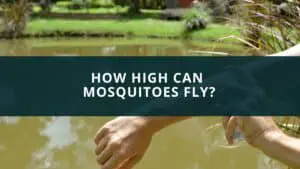Weeds growing in your yard can be frustrating. But some weeds have underlying causes for their growth. Knowing the causes can help you stop it. So, why do clovers grow in the yard?
Causes of clover growth include wrong soil pH levels, low nitrogen levels, compact soil, overwatering or underwatering the soil, cool weather, overexposure to sunlight, planting the wrong type of grass, and mowing too low. Most times, it’s a combination of two or more reasons that cause the growth.
However, you can easily get rid of clovers using safe and organic methods. But that’s if you don’t like them since some owners prefer to have clovers in their yard. Here, we discuss why clovers grow in the yard, the benefits of clovers, and ways to get rid of them.
Quick navigation
Reasons for Clover Growth in Your Yard
There are several reasons clovers could be growing in your yard. Here, we discuss the reasons and how to fix the issues.
1. Wrong Soil pH levels
The pH level of the soil determines how acidic or alkaline it is. If the soil is too acidic, grasses will find it difficult to grow, but clovers prefer such soil. Anything between 6.0 to 7.0 pH is good for grasses. But clovers can thrive at lower pH and higher pH too.
This is why it’s necessary to test your soil once every few years to ensure the pH level is balanced. If it’s not, you can add wood ash or lime if it’s acidic. Or sulfur and compost if it’s alkaline.
2. Low Nitrogen levels
Clovers will thrive in soils with limited nitrogen. Unlike grasses that require nitrogen from the soil, clovers can get their nitrogen directly from the air. So, it fertilizes itself. This is because clover is a legume.
There are several reasons the soil could be low on nitrogen. It could be because of heavy fertilizer use. Usually, fertilizers have a good short-term effect in that they let your grasses grow better and faster. But they can deplete the soil quality. So it’s usually better to use organic manure and compost for your soil.
3. Compact Soil
The soil in your yard could get compact due to several reasons. Maybe you’re walking on it when it’s waterlogged. Whatever the reason, compacted soil makes it difficult for nutrients to reach whatever you plant on it. But clover won’t have any problem thriving in such soil. This is because of its thick interconnected root system.
You can loosen your soil by using a spike aerator. Regular aeration will give your grass room to breathe and thrive. So, it’ll overpower the clovers. Once a year, aeration is usually good enough in most regions.
4. Overwatering or Underwatering the Soil
A well-watered soil is great. But if you overwater it, you might just be creating the perfect environment for clover to thrive. Overwatering will wash away the nitrogen in your soil. That makes it very inviting for clovers which will thrive there effectively. But grasses won’t be able to survive on the same soil. So, try not to overwater the soil.
At times, it could be within your control, such as when your sprinkler system is acting up. But other times, it could be natural such as frequent and heavy rains. Overwatering will also cause diseases, soil compaction, shallow roots, and grass fungus.
Underwatering the soil could also be equally good for clovers. It’ll leave your grass discolored and wilted. Clover, on the other hand, loves drought and will keep growing.
Make sure you water the yard regularly. But it shouldn’t be too frequent and shallow. Also, water in the morning before 10 am instead of at night. This could lead to diseases.
5. Cool Weather
If the weather in your yard is a bit cold, you might just have created space for clover to thrive. Cooler temperature limits the effectiveness of microbes that break down the nutrients in the soil. This means it’ll take more time for the nitrogen to get to the grass. Clovers don’t need nitrogen from the soil, so they’ll thrive comfortably while your grass dies from inactivity.
6. Overexposure to Sunlight
It’s almost as if clover can do well in any environment, and that’s true to a large extent. Direct sunlight is also a risk factor for clovers to invade your yard. Alone, it isn’t enough. But when you combine it with other risk factors, you might have clovers.
The solution to this is to keep your yard healthy. Grasses also like sunlight. So if there aren’t any other risk factors, you have nothing to worry about. You could plant a few trees or dense bushes to provide a barrier. Some shade in your yard won’t be bad.
7. Mowing Too Low
If you mow your grass too low, you might be encouraging clover growth. Grasses need to have an advantage over the clover, and they can do that if they’re not mowed as short. This will allow grasses to block sunlight from reaching the lower growing clover. It’ll affect their ability to thrive.
The solution to this is to set your mower to a higher deck setting, at least above 3 inches. This will let it tower above the clover. You can also follow the one-third rule, which requires that you don’t remove more than ⅓ of the grass height when mowing.
8. Wrong Type of Grass
Clovers can thrive in different settings, especially cool and moist environments. But grass is selective. It’ll have a problem adapting if you’re planting the wrong kind of grass. It may even develop diseases and die.
Suppose you live in the Midwestern or northern regions where clovers are most common. Plant cool-season grass. If you’re unsure which grass is good for your region, you can always ask.
How to get rid of Clovers
Here are ways to get rid of clovers in your yard:
- Weed them
- Add nitrogen-rich fertilizer to the soil
- Apply a dish soap and vinegar mixture
- Use a garbage bag or plastic sheet to smother them
- Use broadleaf herbicide to kill the plants
- Use organic weed killers
- Spray the clovers with corn gluten meals
Benefits of Clovers
Clovers aren’t all bad, and they offer some benefits to your yard. That includes:
- Natural fertilizers for the yard
- Prevent real weeds from growing
- Serves as a living mulch
- Attract pollinators to your yard
- Drought resistant and cover crop, which reduces watering and mowing needs
In Conclusion
Clovers have ways in which they benefit your yard, but you might prefer real grass. In that case, knowing the things that make your yard comfortable for them will help you limit their growth. You can also get rid of clovers in simple and safe ways.



